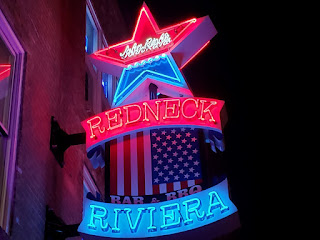Joyful Noise or Travesty of Justice for Katy Perry?

Or perhaps even (pun intended) "Dark Horse". Whatever side you take in this copyright infringement situation that seems to be trending in the direction of plaintiffs will be somewhat controversial. In the Ninth federal Circuit, to state a claim for copyright infringement, a plaintiff must plausibly allege two things: Ownership of a valid copyright in the subject work Defendants copied protected aspects of the subject work's expression Malibu Textiles, Inc. vs. Label Lane International, Inc. , 922 F.3d 946, 951 (9th Cir. 2019) Some would say that there is no way a Christian rapper like Marcus Gray p/k/a Flame could make this happen against an artist like Katheryn Elizabeth Hudson p/k/a Katy Perry, associated songwriters, and Capitol Records, LLC. But following five years of pretrial litigation and seven days of proof, that is exactly what happened. "Joyful Noise" appears on the album Our World: Redeemed , which received a Grammy nomination fo...













